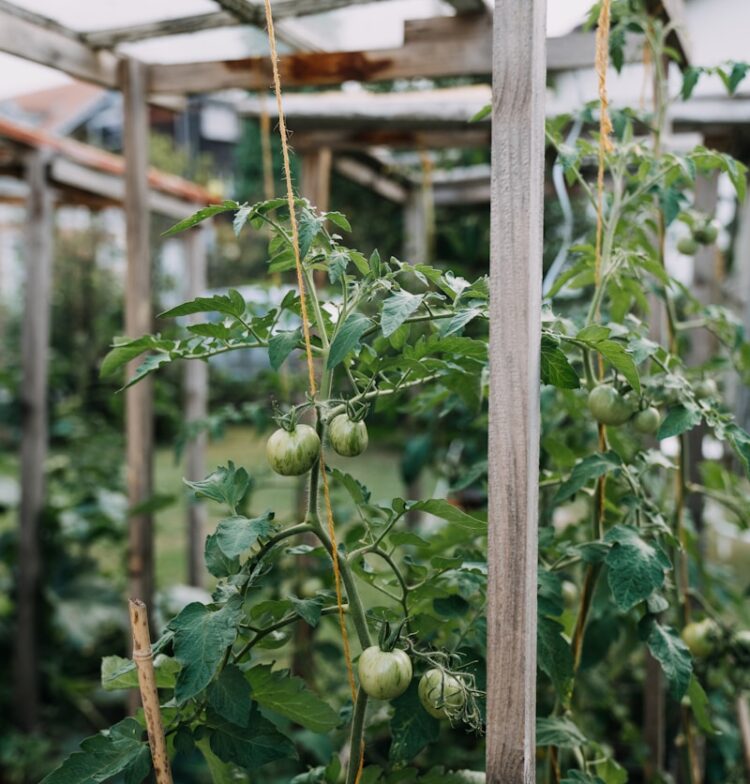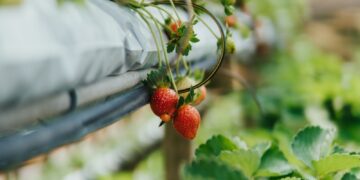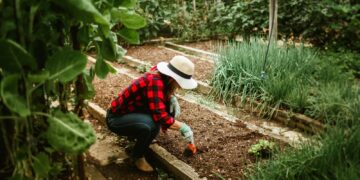Grow Your Own Organic Oasis: A Beginner’s Guide to Starting a Vegetable Garden at Home
Are you tired of buying expensive vegetables at the grocery store? Do you want to enjoy fresh, organic produce right in your own backyard? Starting a vegetable garden at home is a rewarding and sustainable way to ensure a steady supply of healthy, nutrient-rich vegetables. In this beginner’s guide, we will walk you through the essential steps to create your own organic oasis.
Benefits of Growing Your Own Vegetable Garden
There are countless benefits to growing your own vegetable garden. Not only does it save you money on groceries, but it also allows you to have full control over what goes into your food. By growing your own vegetables, you can ensure that they are free from harmful pesticides and chemicals. Additionally, gardening is a great way to reduce stress, stay active, and connect with nature.
Choosing the Right Location
The first step in starting a vegetable garden is choosing the right location. Most vegetables require at least 6-8 hours of sunlight per day, so it is essential to select a spot in your yard that receives ample sunlight. Additionally, make sure the area has good drainage to prevent waterlogging. Consider the proximity to a water source, as you will need to water your garden regularly.
Preparing the Soil
Good soil is the foundation of a successful vegetable garden. Before planting, it is crucial to prepare the soil by tilling it and adding organic matter such as compost or manure. This will provide essential nutrients for your plants and improve soil structure. You can also conduct a soil test to determine the pH level and nutrient content of your soil and make any necessary adjustments.
Choosing the Right Vegetables
When selecting vegetables to grow in your garden, consider your climate, growing season, and personal preferences. Some easy-to-grow vegetables for beginners include tomatoes, peppers, cucumbers, lettuce, and carrots. Make sure to choose a variety of vegetables that will provide a diverse and balanced diet.
Planting and Maintenance
Once you have prepared the soil and selected your vegetables, it is time to plant your garden. Follow the planting instructions on the seed packets or plant labels, and make sure to space your plants according to their specific requirements. Water your garden regularly, especially during dry periods, and mulch around your plants to retain moisture and suppress weeds. Monitor your garden for pests and diseases and take appropriate measures to protect your plants.
Harvesting and Enjoying Your Vegetables
As your vegetables grow, you will start to see the fruits of your labor. Harvest your vegetables when they are ripe, as this will ensure the best flavor and quality. Enjoy the satisfaction of eating fresh, organic produce that you grew yourself. Get creative in the kitchen and try new recipes with your homegrown vegetables.
Common Questions About Starting a Vegetable Garden
Q: Can I start a vegetable garden if I don’t have a lot of space?
A: Absolutely! You can start a vegetable garden in containers on a balcony, patio, or even a sunny windowsill. There are many compact varieties of vegetables that are well-suited for small spaces.
Q: Do I need to use pesticides in my vegetable garden?
A: No, you can avoid using pesticides by practicing organic gardening methods such as crop rotation, companion planting, and using natural predators to control pests.
Q: How often should I water my vegetable garden?
A: It is important to water your garden regularly, especially during dry periods. Check the moisture level of the soil by sticking your finger into the soil. Water your garden when the top inch of soil is dry.
Conclusion
Starting a vegetable garden at home is a fulfilling and sustainable way to enjoy fresh, organic produce right in your own backyard. By following the steps outlined in this beginner’s guide, you can create your own organic oasis and reap the numerous benefits of growing your own vegetables. Get started today and watch your garden thrive!
Remember to be patient and enjoy the process of gardening. With a little time and effort, you will soon be able to enjoy the fruits of your labor and savor the delicious taste of homegrown vegetables.












